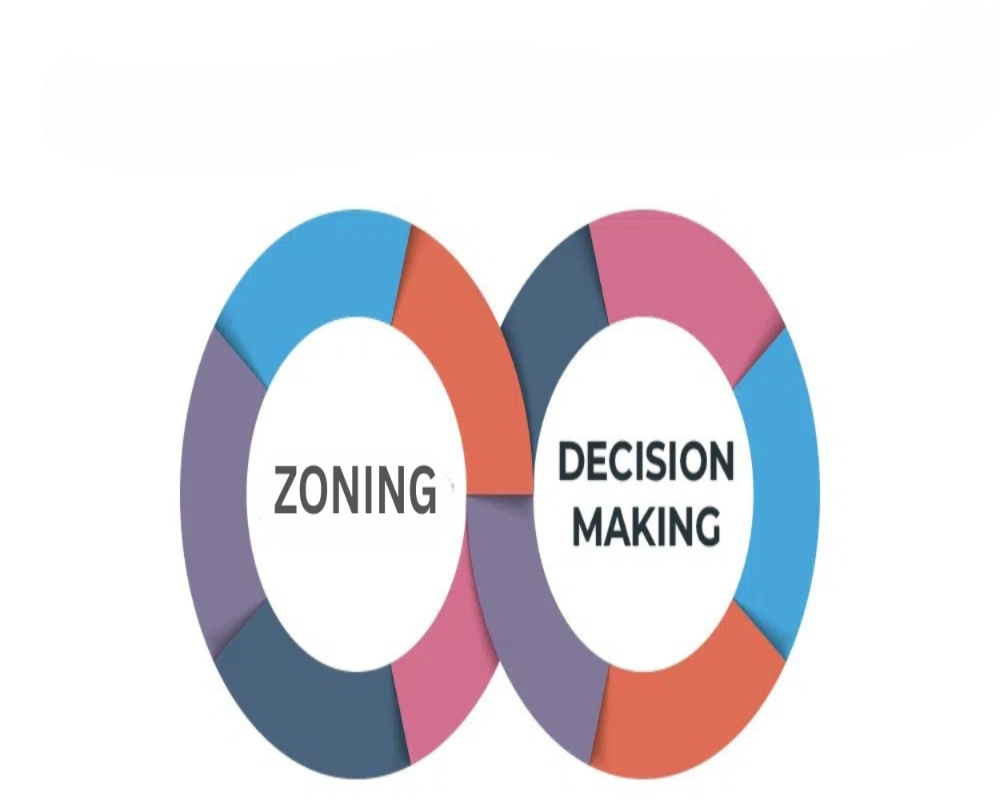Introduction
Zoning boards play a critical role in shaping the physical and functional landscape of cities and towns. As local authorities responsible for interpreting and enforcing zoning laws, these boards have considerable decision-making power that directly influences land use, development patterns, and community character. Zoning boards act as quasi-judicial bodies, making determinations on issues such as variances, special permits, appeals, and interpretations of zoning ordinances. Their decisions impact not only individual property owners but also the broader community, affecting everything from neighborhood aesthetics to economic development. Understanding the scope of zoning board decision-making powers is essential for developers, property owners, legal professionals, and citizens engaged in land use processes.
1. Role and Composition of Zoning Boards
Zoning boards, often referred to as Boards of Zoning Appeals (BZA) or Zoning Hearing Boards, are composed of appointed members who typically possess knowledge of planning, real estate, or public administration. Their primary role is to interpret and apply local zoning ordinances in a fair and consistent manner. These boards operate independently from elected councils and are tasked with evaluating land use applications based on legal standards, not political considerations.
2. Granting or Denying Variances
One of the most common powers held by zoning boards is the authority to grant area or use variances. Area variances allow deviations from physical zoning requirements like setbacks or height limits, while use variances permit land uses not typically allowed in a zone. Boards must determine whether strict enforcement of zoning rules would cause unnecessary hardship and whether the requested variance is consistent with the public interest.
3. Approving Conditional or Special Use Permits
Zoning boards also evaluate applications for conditional or special use permits, which allow for certain uses under specified conditions. These uses may be appropriate in a zone but require additional review to ensure compatibility with surrounding properties. Boards assess such applications based on factors like traffic impact, environmental considerations, and neighborhood character, often imposing conditions to mitigate potential negative effects.
4. Hearing and Deciding Appeals
Property owners or developers who believe a zoning decision has been unfairly applied can file an appeal with the zoning board. The board reviews these appeals to determine whether zoning officials acted in error or exceeded their authority. This appellate function ensures a check-and-balance system within the local zoning process, allowing for impartial reconsideration of administrative decisions.
5. Interpreting Zoning Ordinances
Zoning ordinances can be complex and subject to varying interpretations. Zoning boards have the authority to interpret unclear or disputed sections of zoning codes. This may involve clarifying land use definitions, determining the boundaries of zoning districts, or resolving ambiguities related to specific regulations. These interpretations are binding and set precedents for future applications.
6. Conducting Public Hearings
Zoning boards are required to hold public hearings as part of their decision-making process. These hearings provide a forum for applicants to present their cases and for the public to express support or opposition. The board must consider all testimony and evidence presented before making its decision. Public hearings promote transparency and community involvement in zoning matters.
7. Imposing Conditions on Approvals
When granting variances or special use permits, zoning boards have the authority to impose conditions designed to protect public health, safety, and welfare. These conditions may include operational limits, design modifications, landscaping requirements, or infrastructure improvements. The board ensures that the project remains compatible with zoning goals while addressing potential impacts on surrounding properties.
8. Enforcing Compliance Through Decisions
Although zoning boards do not typically conduct enforcement themselves, their decisions carry legal weight and must be respected by property owners and developers. Failure to comply with the terms of a zoning board decision—such as violating conditions or exceeding the scope of a variance—can result in penalties, revocation of permits, or legal action by the municipality.
9. Coordinating with Planning and Building Departments
Zoning boards often work in tandem with planning commissions, building departments, and code enforcement officers. While the planning commission may focus on long-term land use strategies, the zoning board addresses individual applications and immediate legal interpretations. Collaboration ensures consistent application of regulations and alignment with broader municipal planning objectives.
10. Subject to Judicial Review
Zoning board decisions can be appealed to a court of law if a party believes the board acted improperly or unlawfully. Courts review whether the board followed due process, based its decision on substantial evidence, and applied the zoning ordinance correctly. While courts typically defer to the board’s expertise, they can overturn decisions that are arbitrary, capricious, or legally flawed.
Conclusion
Zoning boards hold significant decision-making power that shapes how communities grow and develop. Their authority to grant variances, issue special permits, interpret zoning codes, and hear appeals ensures that zoning regulations are applied with fairness, flexibility, and legal integrity. Through public hearings, legal oversight, and community engagement, zoning boards serve as critical guardians of balanced land use. A clear understanding of their roles and responsibilities enables stakeholders to navigate the zoning process effectively and contribute to well-planned, equitable, and resilient communities.
Hashtags
#ZoningBoard #DecisionMaking #UrbanPlanning #LocalGovernment #ZoningLaws #CommunityDevelopment #LandUse #PublicHearing #ZoningRegulations #CityPlanning #NeighborhoodImpact #GovernmentTransparency #CivicEngagement #PlanningCommission #ZoningDecisions #CommunityInput #SmartGrowth #ZoningProcess #LocalZoning #PublicPolicy


